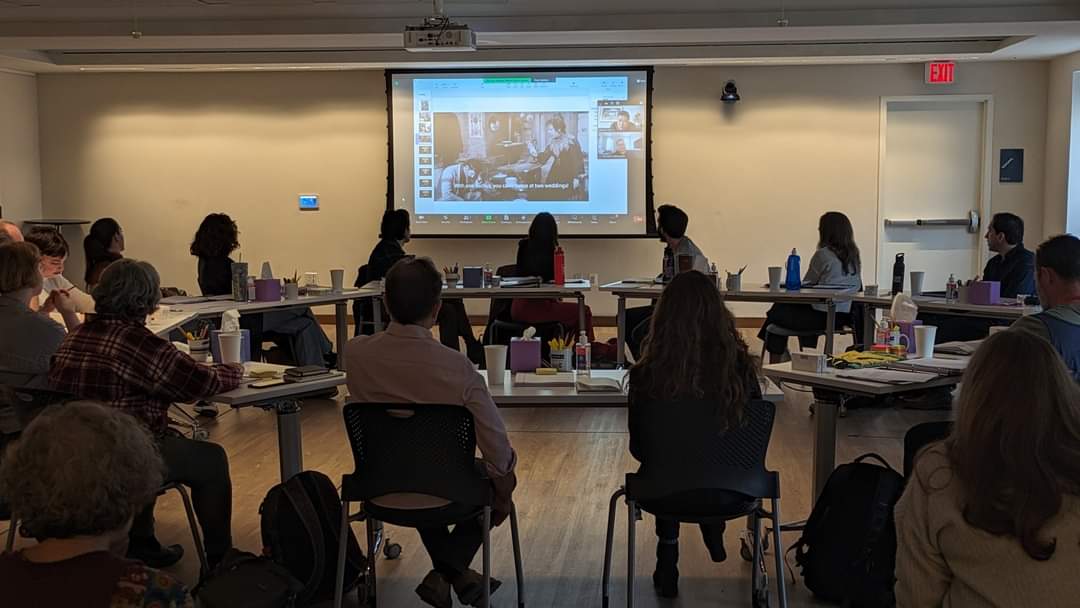Last week, we began rehearsals for our much-anticipated world premiere, Hester Street, the adaptation of the beloved 1975 film Hester Street by Joan Micklin Silver.
The company and friends of Theater J gathered to hear a first read-through from an outstanding cast. There were the small gasps, moments of laughter, and of course brief pauses to wipe a tear.
The award-winning Broadway director Oliver Butler directs this timeless story, produced in association with Michael Rabinowitz and Ira Deutchman.
Enjoy these images from our first day of rehearsal – and don’t forget to book your tickets for an unforgettable evening. Let Hester Street shine new light on a deeply familiar human experience.
Hester Street
March 27 – April 21
Faced with the disintegration of her marriage in a world she can barely comprehend, Gitl must find her voice, protect her son, and redefine her identity. A deeply moving new stage adaptation Hester Street is an unforgettable show, awash in the humor, heartbreak and hope essential to the Jewish immigrant experience.






 There isn’t a day that goes by when I don’t read The New York Times. I fully admit to being one of those old-fashioned people who reads the news on paper; I flip through every page, skimming the articles, diving into whatever grabs my attention, and feeling like I’ve absorbed enough information to be up to date on our crazy world.
There isn’t a day that goes by when I don’t read The New York Times. I fully admit to being one of those old-fashioned people who reads the news on paper; I flip through every page, skimming the articles, diving into whatever grabs my attention, and feeling like I’ve absorbed enough information to be up to date on our crazy world. In yesterday’s New York Times, the showrunners of several current political TV dramas discuss how the outrageousness of current political reality has affected the plotlines of their shows. Some of them talk about how they had to change the direction of the current season to take into account the real-life headlines that, in some cases, might make a plot twist dated or moot. Reading this, I couldn’t help but feel that there’s another side to this—one that these showrunners might not want to face: that these fictional television series have unwittingly aided and abetted a climate of mistrust for government and the rise of “fake news.”
In yesterday’s New York Times, the showrunners of several current political TV dramas discuss how the outrageousness of current political reality has affected the plotlines of their shows. Some of them talk about how they had to change the direction of the current season to take into account the real-life headlines that, in some cases, might make a plot twist dated or moot. Reading this, I couldn’t help but feel that there’s another side to this—one that these showrunners might not want to face: that these fictional television series have unwittingly aided and abetted a climate of mistrust for government and the rise of “fake news.” Good morning.
Good morning.